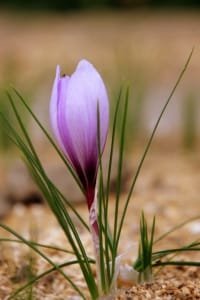Prediction of harvesting 49 tons of saffron from farms in South Khorasan
The head of the Jihad Agricultural Organization of South Khorasan announced the forecast of harvesting 49 tons of saffron this year in the province.
Gholamreza Haderbadi announced the cultivation of saffron in the province as 14,600 hectares and added:
Qaen has the highest amount of saffron harvest.
Haderbadi stated:
The drought of the last few years has had a great impact on the yield and production of this valuable and durable product,
and considering that a large area of water in the aqueducts has been under saffron cultivation and due to the reduction
of aqueduct discharge and drying of some aqueducts Along with the decrease in groundwater quality,
this yield has reached 4 kg per hectare.
Hadrabadi, training in selecting land and areas prone to cultivation, preparation based on technical principles,
using high quality and healthy seeds (onions) weighing more than 8 grams to shorten flowering time,
rejuvenation of saffron fields, proper nutrition and use of organic fertilizers Such as vermicompost and rotted animal manure
with sufficient aim to increase the percentage of soil organic matter,
the principles and methods of proper harvesting and processing and packaging of saffron
as a quality production of this product in the stages of planting, holding and harvesting.
He pointed out that the harvest time of saffron is possible according to the autumn weather conditions, he said:
water supply will be done in different areas of the province depending on the impact of drought and the credit allocated.
He pointed out:
Drought and depletion of aqueduct water are among the problems that saffron growers in South Khorasan face.
Saffron is an organic crop because most farmers used to use animal manure to feed it in the past,
in farms that use mechanical methods to control weeds and do not use pesticides or chemical fertilizers,
or the permissible limit.
South Khorasan ranks second in the country in terms of saffron production.







Get Social